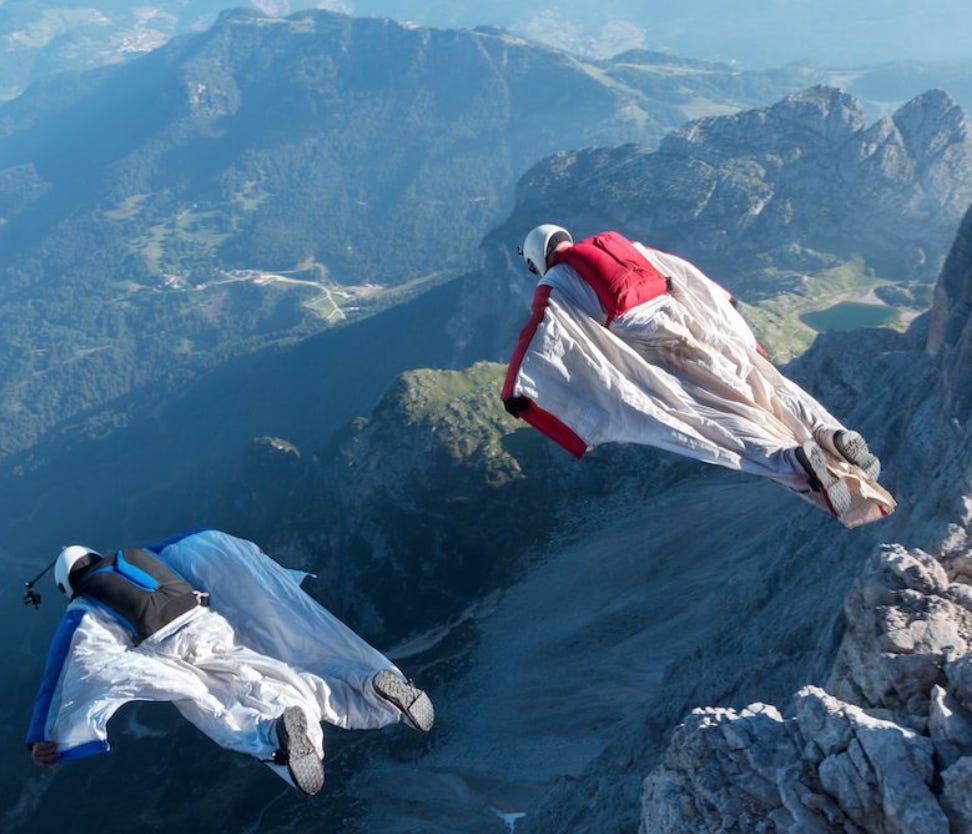Excerpt: Strategy and Psychology, part four
Evolutionary Psychology
We’ve all seen the movies. We’ve all scrolled through the endless TikTok and YouTube videos. A person literally leaps off a cliff or a building and… flies. For a few minutes. Looking a bit like a flying squirrel. And then? Safely lands. And you think - what? Why? You shake your head in awe and bewilderment at the risk taken. What is it about risk and human psychology?
“According to Andreas Wilke, an evolutionary psychologist at Clarkson University in New York, some risk-takers are just foolish. Adolescent males especially, do silly things to show off…
“People’s appetite for risk appears to be domain specific. People who enjoy jumping off cliffs will not necessarily be keen to put their money into risky investments, or take risks in their relationships. Even within seemingly similar domains, appetites to risk vary. Financial investment can look rather like gambling, but Mr Wilke’s research shows that professional investors perceive gambling as far riskier than most people do…
“According to Mr Wilke, what varies is not so much people’s appetite for risk so much as their assessment of it. Wingsuit jumpers and climbers recognise the dangers of what they do, but they trust in their abilities to mitigate the risks, and value the rewards highly. “You do the kind of things you’re not afraid of,” he says. That applies even to wingsuiters. Steph Davis, an American climber and another wingsuit jumper, says that people who take the sorts of risks she takes—climbing a sheer mountain face without ropes, for example—do not see it as scary in the way outsiders do… But just as gambling seems less risky if you have plenty of money to lose, so (cliff) jumping is less risky if you have trained, she says. “It’s a question of how much cushion you have.”
““We have evolved to deal with natural stress…,” she says. In general we may try to minimise risk. Yet if we took no risks, and never did anything reckless, we would live less happy lives.”*
* Anonymous, “Last of the daredevils,” The Economist (January 30 2021): 47-8
We’ve just been through a life-changing increase in risk with the covid-19 pandemic. The risk of death, the risk of post-covid chronic illness, and the accompanying risk of economic and political penalties from the wide variety of lockdowns and public health policies. We are painfully more self-aware of our own assessments of risk and the different assessments of risk of those around us. Understanding the psychological basis for risk is important for strategists in this new post-covid world.
Keep reading with a 7-day free trial
Subscribe to The Strategy Toolkit to keep reading this post and get 7 days of free access to the full post archives.


